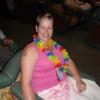-
Content Count
77 -
Joined
-
Last visited
About AdiosPlusSizes
-
Rank
Senior Member
About Me
-
Gender
Female
-
Occupation
Teacher
-
City
Orange County
-
State
California
-
AdiosPlusSizes started following Pain On My Left Side, My pants fell down!, Having some discomfort? and and 6 others
-
-
-


I cannot believe what I'm doing...don't I get it?
AdiosPlusSizes replied to AdiosPlusSizes's topic in POST-Operation Weight Loss Surgery Q&A
I just have two more days until I get to start my pureed diet, and I'm greatly looking forward to it. I am very tempted to start early but I'm going to stick it out. I think I know just how you must have felt. -
-
-
-
-


Having some discomfort?
AdiosPlusSizes replied to Vsgmommy19's topic in POST-Operation Weight Loss Surgery Q&A
I got that too, after only 4 days post-op, and I'm still dealing with it. I'm now 12 days post-op, so this has been going on for about 8 days. My doctor told me that it's some intestinal spasms that might happen as part of the healing process. He said it should go away as I continue to heal. I've heard from at least 10 other people in this forum that dealt with or are currently dealing with the same thing. It would seem that this does not happen to a lot of people but enough of them so that we should not panic or be alarmed about it. Does yours feel like a sharp stabbing pain, the kind you'd get from exercising too hard? That's what mine feels like, and it comes and goes throughout the day. -
-


I cannot believe what I'm doing...don't I get it?
AdiosPlusSizes replied to AdiosPlusSizes's topic in POST-Operation Weight Loss Surgery Q&A
Some of this is a bit over my head, but I think this abstract says that two groups of obese individuals were researched for weight loss, one group in ketosis and the other not, and that the group in ketosis had lost more weight. It seems to say that these individuals were tested for ketosis (ketonuria) after either 8 hours of fasting or caloric reduction. If I've read this correctly, and there is a high probablity that I did NOT, this would indicate the researchers believe that low carb dieting is a faster way to lose weight. Well, low carb worked really well for me, but then I'd just put the weight back on. I did not see a thing about bariatric surgery or lowering calories. Am I wrong? I'm sorry for my ignorance! -


I cannot believe what I'm doing...don't I get it?
AdiosPlusSizes replied to AdiosPlusSizes's topic in POST-Operation Weight Loss Surgery Q&A
Oh, I am not at all worried about becoming anorexic. The conversation sorta went off topic with that because I had compared a diet of 600 - 800 calories to that of someone's with an eating disorder. It's just that for more than 20 years of my adult life, being on and off diets, I heard the many warnings against going on crash diets, which are (or were) considered diets with less than say 1,000 calories a day, becaue you'll lose more muscle than fat and you'll end up lowering your metabolism. I got this kind of information from stuff that I learned like in the 80s and 90s. I'm thinking that there might be newer research that substantiates the lower calories, but so far I've not found anyone that has it. Do you happen to know if there is newer research? I would not be surprised if there was. I spent a good amount of the last 10+ years on and off of low carb diets. (I have Ketosis strips in my medicine cabinet.) Thanks for your support! -


I cannot believe what I'm doing...don't I get it?
AdiosPlusSizes replied to AdiosPlusSizes's topic in POST-Operation Weight Loss Surgery Q&A
Thanks for your suggestions!! I was just hoping that someone had their hot little hands on the reasoning behind this 600 - 800 calorie instruction that many, but not all, post-ops are given to by their doctor or nutritionist. -
-
-


I cannot believe what I'm doing...don't I get it?
AdiosPlusSizes replied to AdiosPlusSizes's topic in POST-Operation Weight Loss Surgery Q&A
Oh, I see. You get your numbers from your work with anorexics. Very cool! Yes, I've been struggling with head hunger and tempation and even gave in yesterday. Today, that struggle is much conqured, thanks to the words of wisdom from so many of you. Do you have some medical journals that you'd recommend I look at? Head hunger, though, seems to me to be more psychological than medical. But, knowing the facts does not always stop me from engaging in poor behavior, sadly. I knew of many physical consequences that could come from obesity and poor eating but that did not stop me for becoming obese or eating a bunch of junk food. Thanks for your well wishes and support!! -
-
-


I cannot believe what I'm doing...don't I get it?
AdiosPlusSizes replied to AdiosPlusSizes's topic in POST-Operation Weight Loss Surgery Q&A
Right!! That is precisely what I'm doing; I'm inquiring into the reasoning for the very low calories for the months of the weight loss phase. Although, I was slightly concerned that having insufficient calories might slow down my healing process, but someone else already spoke to that and said that it's more important to worry about Protein than calories for the healing phase, according to her nutritionist. This makes sense, too, because protein builds muscle and aids in reparing the body. I thank you so much for your help and support!! -
-
-


I cannot believe what I'm doing...don't I get it?
AdiosPlusSizes replied to AdiosPlusSizes's topic in POST-Operation Weight Loss Surgery Q&A
I totally don't mind people asking me questions. It is always better to ask then to assume and make misguided suggestions or misinterpret someone's question. I really appreciate your support and your lovely way of putting things. Feel free to ask me anything you'd like. -
-


I cannot believe what I'm doing...don't I get it?
AdiosPlusSizes replied to AdiosPlusSizes's topic in POST-Operation Weight Loss Surgery Q&A
What research are you referring to? Do you mean scientific research? I would love to hear about more research. Do you have some credible sites that you'd recommend? I watched a lot of VSG pre and post-op YouTube videos, for about two and a half years before having the surgery. This is really where I got a lot of my information from. I cannot say, however, that I conducted any rigorous research beforehand. I never even glanced at a medical journal or anything like that. I've relied on what I learned from following many, many people's personal experience. From the hundereds of videos that I watched, it seems that you can eat just about anything, just a few months post-op, but not necessarily the same quantity as before, unless you end up stretching your sleeve. Many people state that they struggle with regain, so it would seem that you can eat quite a bit. On the day my surgeon discharged me from the hospital, he warned me against stretching out the sleeve, saying that once it was stretched that it would never go back again. So, I know that it's very important not to consume too much bulk. It's pretty easy, though, to consume 1,200 calories a day with very little bulk. I think a pint of Ben & Jerry's would do the trick, not that I'll ever eat that. (Dairy and my tummy, at least my old tummy, don't usually get a long.) If you are trying to eat 1,200 calories of pure veggies, I can see that this would be almost impossible without stretching back out your stomach. I'd say there are lots of ways to get in well over 1,200 daily calories with a stomach the size of a banana. -


I cannot believe what I'm doing...don't I get it?
AdiosPlusSizes replied to AdiosPlusSizes's topic in POST-Operation Weight Loss Surgery Q&A
I certainly am all ears to your recommendations, coming from a successful WLS person 2 years out. What does VBG stand for? I'm going to guess that is Very Big Girl...am I right? -


I cannot believe what I'm doing...don't I get it?
AdiosPlusSizes replied to AdiosPlusSizes's topic in POST-Operation Weight Loss Surgery Q&A
Okay, so maybe the high protein intake counterbalances some of the negative effects of the extremely low calories, such as losing muscle and compromising certain internal functions. There are other effects, such as hair loss, that we won't be able to avoid, from what I've heard from basically everyone that's over 4 months post-op. Maybe it's something along these lines that make it okay to carry on in what would normally be considered a starvation diet for an extended period of time. Hmm...even so, why would a nutritionist want a person to lose weight so quickly? Could it be because the restriction benefits of WLS tend to disappear after a limited period of time, such a year? I wonder... -


I cannot believe what I'm doing...don't I get it?
AdiosPlusSizes replied to AdiosPlusSizes's topic in POST-Operation Weight Loss Surgery Q&A
I'm like a four year-old when they are in their 'Why?' stage. I hoped someone in the forum knew the answer, but I guess I just won't know the answer today. -


I cannot believe what I'm doing...don't I get it?
AdiosPlusSizes replied to AdiosPlusSizes's topic in POST-Operation Weight Loss Surgery Q&A
Researching sleeve tears is a really good idea for keeping me away from temptation. Awesome idea!! Thanks! -


I cannot believe what I'm doing...don't I get it?
AdiosPlusSizes replied to AdiosPlusSizes's topic in POST-Operation Weight Loss Surgery Q&A
I'm sorry, but I don't quite follow what you're saying because the size of our stomach does not determine, to my knowledge, the number of calories a person needs to carry on a normal day of activity. I'm not really comparing WLS patients to anorexics, I'm just sorta pointing out that this caloric intake level is not considered appropriate even for dieters. Do you know what I mean? Why would a WLS person be asked to intake about 800 calories until they have gotten to goal weight? There must be something that I am missing... -


I cannot believe what I'm doing...don't I get it?
AdiosPlusSizes replied to AdiosPlusSizes's topic in POST-Operation Weight Loss Surgery Q&A
I'm not tracking, but I suspect I'm well below 600 calories daily. I'm just not able to get that much down. I sip, sip, sip, but, between the Water and the protein, it takes me too long to finish anything. My doctor gave me a list of foods but never said how many calories to take in. All I know is that I need to get around 60 grams of protein or more daily. However, for the last 20 years of my adult life, I've been paying attention to calories and seen many warnings against not getting enough of them, that is, going on crash diets. This is probably why it's alarming for me to be consuming such a low number, and this makes me anxious. All I really would like to have is some sound medical/scienfic rationale for this caloric recommendation, so that I can put my mind to rest. I hope this makes sense. Do you happen to know?





